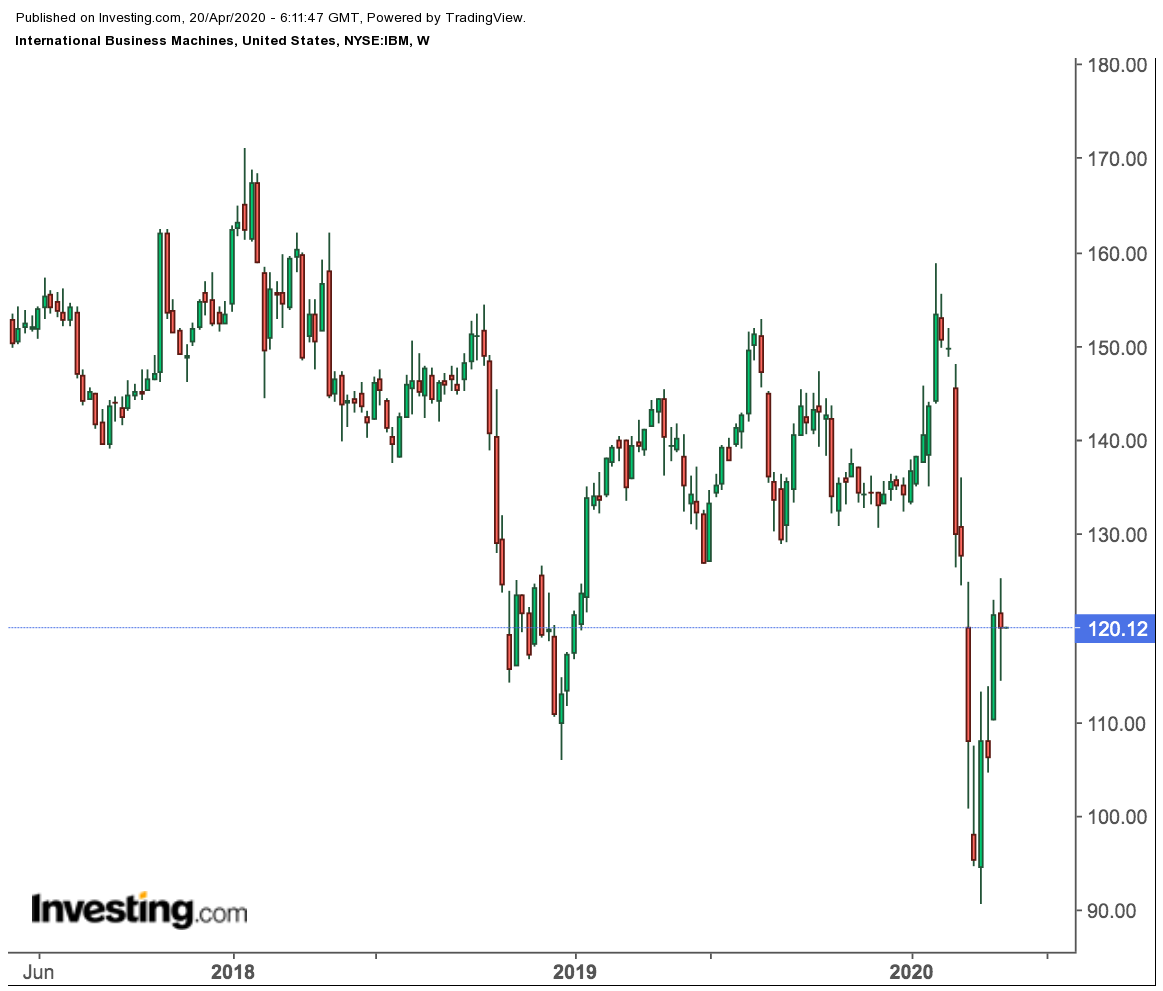* Reports 1Q 2020 results on Monday, April 20, after the market close
* Revenue Expectation: $17.63 billion
* EPS Expectation: $1.78
When International Business Machines (NYSE:IBM) reports its first quarter earnings later today, investors will be focusing on two things: how the pandemic is affecting its business and what the new management plans to do to accelerate the company’s turnaround.
Today’s earnings will be the first after Ginni Rometty stepped down as CEO on April 6, following a challenging eight-year run at the top of the iconic technology company. During her tenure sales declined and competitors grabbed market share in the cloud infrastructure market.
Her successor, Arvind Krishna, headed the company’s cloud and cognitive-software division. Jim Whitehurst — the chief executive of Red Hat, the open-source software giant that IBM acquired for about $34 billion last year — was appointed the company’s president.
IBM's new management structure has brightened prospects for the Armonk, NY-based company to reverse its declining trend in sales and become a forceful competitor in the cloud-computing market where Microsoft (NASDAQ:MSFT) and Amazon (NASDAQ:AMZN) are the main players. IBM is currently the fifth-largest public cloud infrastructure provider, according to research firm Gartner, with less than 2% market share.
Rometty last year spearheaded the company’s acquisition of Red Hat, betting on hybrid cloud technology to reverse the lingering slide in sales. She said the deal would add a relatively high-margin software business to IBM’s stable of offerings at a time when the company’s big clients are shunning its hardware and storing their data on cloud services provided by rivals.
Signs of Progress
The company’s last earnings statement, published in January, demonstrated that these efforts have begun to show results: IBM's fourth quarter sales beat analyst estimates, breaking a streak of five consecutive declines.
Red Hat contributed $1 billion in revenue in the quarter ended Dec. 31, but IBM was only allowed to recognize $573 million of that due to U.S. accounting standards.
Despite these positive signs, IBM is unlikely to escape the hit from the COVID-19 pandemic that's slamming the global economy and slowing business investments. The Street consensus shows that sales are likely to fall 3% and EPS 20% in 1Q when compared to the same period a year ago.
That weakness is very much reflected in IBM’s share price, which has fallen 10% this year, closing at $120.12 on Friday. However, despite this slide, there is some light at the end of the tunnel: IBM could well see benefits in the post-coronavirus world as businesses expand their tech budgets, focusing on storage, WiFi, broadband, access and cloud infrastructure.
Bottom Line
In the short-run, IBM will continue to be impacted by the coronavirus-triggered decline that will drag down its sales and profitability. But with new management in place, and their sharp focus on the fast-expanding cloud market, IBM stock remains an appealing turnaround bet for long-term passive investors.
The shares yield 5.6% — more than double the S&P 500′s 2.31% average — with an annual dividend payout of $6.48. The company has increased its dividend five times in the past five years. We believe the upside potential remains strong, if the information technology company is able to show that its Red Hat acquisition has begun to pay off.
